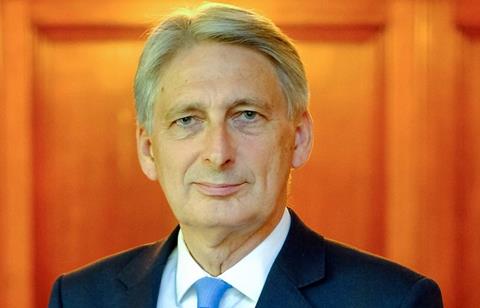
Spring Statement 2019: The government has appointed an economics professor to review the minimum wage policy in the UK and consider its impacts on employment and productivity.
Chancellor Philip Hammond (pictured) announced in his Spring Statement address today (Wednesday 13 March 2019) that the government has issued terms of reference to Professor Arindrajit Dube, professor of economics at the University of Massachusetts Amherst, to conduct a review of the latest international evidence on the impact of minimum wages.
Working alongside other academics and the Low Pay Commission (LPC), Dube has been asked to consider innovative minimum wage models, the role of individual labour market characteristics in influencing minimum wage structures, implications around the UK’s specific minimum wage policy and how the UK’s approach differs to other countries and labour markets.
The review will further explore the potential impacts of minimum wages on employment, in terms of volume and structure, productivity and economic growth, as well as analyse the ability of the labour market to absorb future minimum wage rises. Dube will also analyse the implications for future minimum wage policies in the UK, linking this to the government’s goals from the Autumn Budget 2018.
The review has been designed to aid the work being completed by HM Treasury and the Department for Business, Energy and Industrial Strategy (BEIS). Its conclusions will help inform the national living wage policy after 2020, as well as the future remit of the LPC.
Linked to this, Hammond also confirmed the LPC’s remit for 2019; a new remit for 2020 and beyond will be decided later this year.
The government has asked the LPC to monitor and evaluate the national living wage and to recommend whether current economic conditions allow for the rate effective from April 2020 to meet 60% of median earnings by October 2020.
Furthermore, the LPC has been asked to look into the various national minimum wage rate levels for different age groups, and the apprenticeship rate, and to propose increases it believes should apply from April 2020; this is to ensure rates are set as high as possible without damaging employment prospects. The government will also require the LPC to recommend the accommodation offset rate that should apply from April 2020.
The government has asked the LPC to take into account the state of the economy, employment and unemployment levels and relevant policy changes when making its recommendations. The LPC’s final report is due to be provided by October 2019.
Steve Cameron, pensions director at Aegon, said: “The Chancellor’s commitment to focus on raising wages for the low paid is welcome. One immediate way of doing so would be to instruct HM [Revenue and Customs (HMRC)] to ensure non-taxpayers in net pay schemes receive the 20% tax relief on their pension contributions to which they are entitled.
“Solving this issue would mean someone earning £11,500 and paying the automatic enrolment minimum contribution from April 2019 would be £53 a year better off. For low earners, every little helps.”
Read more...





























